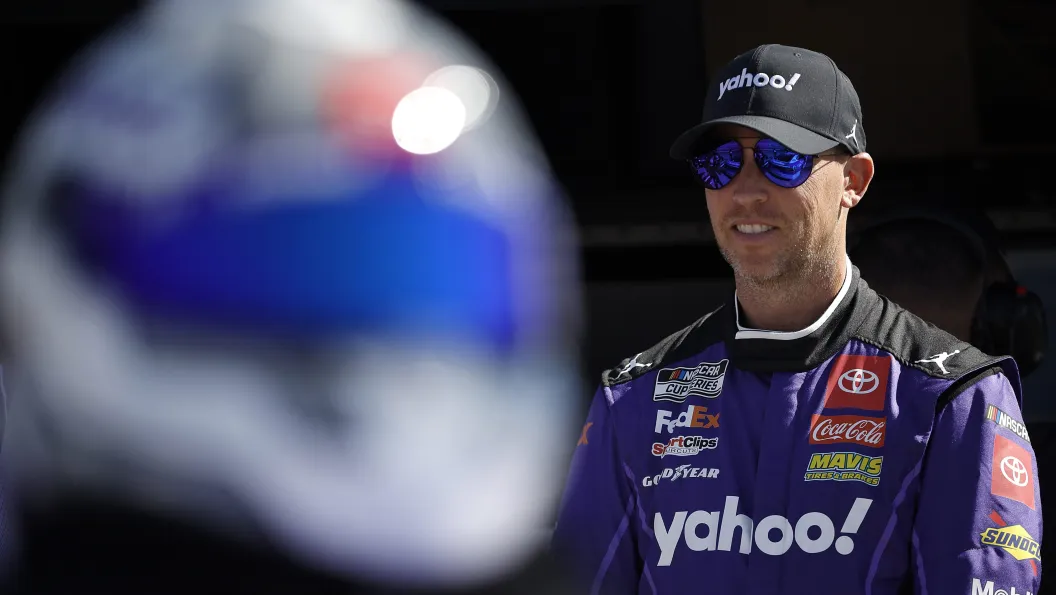23XI Racing and Front Row Motorsports will be able to race as chartered teams during the 2025 Cup Series season after a judge granted their preliminary injunction request.
Videos by FanBuzz
Judge Kenneth D. Bell, who took over the case on Dec. 11, made the ruling on Dec. 18. He ruled that NASCAR must allow 23XI Racing and Front Row Motorsports to enter two race cars in every Cup Series event under the 2025 Charter agreement, with the exception of the clause prohibiting antitrust lawsuits against the sanctioning body.
Additionally, Judge Bell ruled that NASCAR can not refuse the purchase of charters from Stewart-Haas Racing. 23XI Racing and Front Row Motorsports will both be able to expand to three full-time entries while racing under the Charter Agreement and continuing the antitrust lawsuit.
MORE: Full court document granting the request
One important note is that this preliminary injunction is only for the 2025 Cup Series season. The Court will set a case management schedule that will provide for the antitrust lawsuit trial to conclude before the 2026 season.
Judge Frank D. Whitney originally denied the preliminary injunction request on Nov. 8 as teams prepared for the championship races at Phoenix. The two teams initially appealed the decision. However, they dropped the appeal and renewed the motion for preliminary injunction on Nov. 26.
The judge provided four main reasons when granting this preliminary injunction — Likelihood of Success, Irreparable Harm, Balancing of Equities, and Public Interest.
In terms of the Likelihood of Success, Judge Bell wrote that the Court finds NASCAR in possession of monopoly power in the "relevant market." He noted that Formula 1 and IndyCar are not substitutes given the unique cars and specialized racing teams.
"Not only does it operate the only premier stock car racing series in the United States, the barriers for others to enter the market (availability of large racing tracks, highly qualified racing car teams, etc.) are obvious."
In terms of the Irreparable Harm, the documents focused on the drivers for both teams, especially Tyler Reddick. According to the documents, Reddick had given notice that 23XI Racing was "in breach of his driver contract."
If the Court had not granted the preliminary injunction to allow 23XI Racing to compete as chartered teams by Dec. 18, Reddick would have been able to become a free agent. The documents noted that Riley Herbst, Bubba Wallace, Noah Gragson, and Corey Heim all have similar contracts "and/or have expressed their need for immediate resolution."
The Irreparable Harm claims also highlighted two primary sponsors — Monster Energy and Love's Travel Stops. The documents stated that the lack of charters had impacted the sponsor relationships and taken the possibility of harm from speculative to imminent.
In terms of the Balancing of Equities, the Court documents compared the two outcomes of the preliminary injunction request. Judge Bell noted that 23XI Racing and Front Row Motorsports would "likely suffer significant harm" if they raced as Open teams during the 2025 season. For comparison, NASCAR would not be "significantly harmed" by allowing these two teams to race under the Charter Agreement.
Judge Bell noted in the documents that NASCAR has offered the opportunity for the two teams to compete in every race as Open teams, so "there should be no practical difference" in them running as chartered teams.
In terms of the Public Interest, the judge noted that a preliminary injunction is favorable for NASCAR fans. He said that the fans and people who may become fans have an interest in watching the best teams compete with the best drivers.
"Further, the public has an interest in preserving the rights of litigants to pursue legal claims in good faith, particularly antitrust claims that aim to preserve the process of commercial competition," Judge Bell continued.
"Finally, the important public interest in supporting freedom of contract is not significantly undermined by preserving the status quo (by allowing Plaintiffs' cars to race as chartered cars) until the lawfulness of Defendants' conduct is promptly resolved.
"If the 2025 Charter Agreement is fully lawful then it will be upheld, and Defendants won't be required to do business with Plaintiffs. If, however, Plaintiffs are successful then a lawful agreement and/or other appropriate remedy will be the result, all to the public good."
